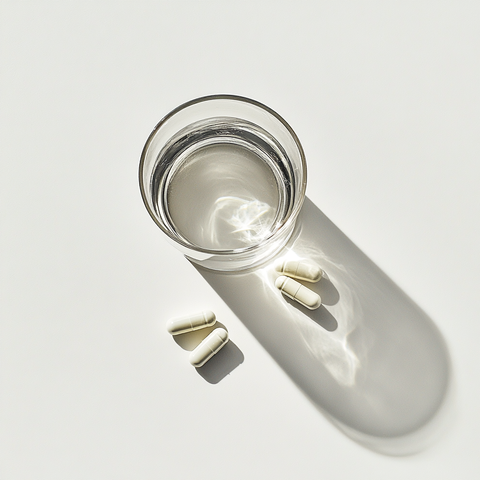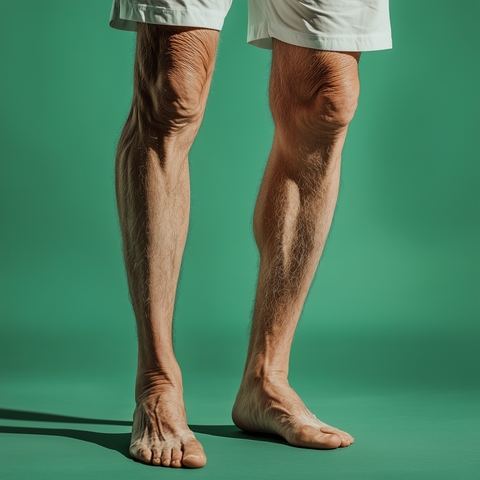Why does skin become dry in winter?
As temperatures begin to drop and winter sets in, many people notice a change in the texture and appearance of their skin. Tightness, roughness, itching, and irritation become familiar companions for those who suffer from dry winter skin . But why do these symptoms specifically appear during the cold season, and how can they be prevented? This article explores the reasons why skin becomes dry in winter and offers effective solutions for protecting and moisturizing your skin during this time.
The mechanisms of skin dryness in winter
To understand why skin becomes drier in winter, it is necessary to look at how the skin naturally functions and how it interacts with its environment.
1. Decreasing air humidity
The main factor responsible for dry skin in winter is the decrease in humidity in the air. During the winter months, the air not only becomes colder, but also drier. This means there is less moisture in the air to naturally hydrate the skin. Without adequate humidity, the skin loses more water through evaporation, a phenomenon called transepidermal water loss .
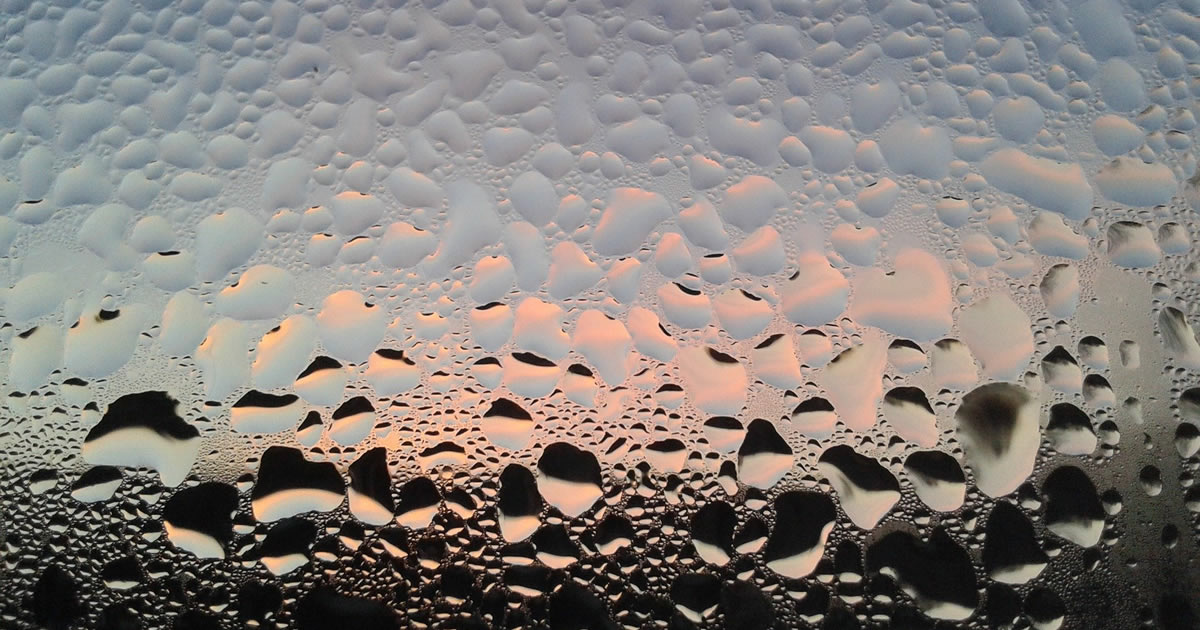
Moisture is essential for skin health because it helps maintain the integrity of the hydrolipidic film, the protective barrier composed of lipids and water. When the air is dry, this barrier is compromised, leaving the skin vulnerable to dehydration.
2. Heating systems
The use of central heating systems, radiators, and fireplaces also contribute to dry skin. While these appliances keep us warm, they dry out the indoor air, creating an environment that wicks moisture away from the skin.
This results in skin that constantly feels thirsty, even if you regularly apply moisturizers. Central heating can also aggravate other skin problems, such as itching, redness, and tightness.
3. Exposure to cold and wind
In winter, the skin is exposed to extreme weather conditions, such as cold and wind, which are particularly harsh on the skin barrier. The cold slows blood circulation in the skin, which reduces the natural production of sebum. Sebum is essential for forming a protective barrier on the skin that prevents it from drying out. Without this natural barrier, the skin loses moisture much more quickly.
Wind, on the other hand, further aggravates moisture loss by creating a layer of drier air near the skin's surface, which accelerates the evaporation of water present in the epidermis.
4. Hot and long showers
In winter, many people take warmer showers or baths to compensate for the cold outside. However, hot water is the enemy of well-hydrated skin. It can strip away the natural oils that keep skin supple and prevent it from dehydrating. Additionally, prolonged bathing can dilute the skin's hydrolipidic film, leading to further dehydration.

Signs of dry skin in winter
Signs of dry skin can vary depending on the severity of dehydration. Here are some common symptoms to look out for during the winter months:
- Tightness : Skin feels uncomfortable and tight, especially after showering or exposure to cold.
- Peeling : The appearance of small dead skin or scales, especially around the elbows, knees and face.
- Redness and irritation : The skin becomes more reactive and can easily become marked.
- Itching : In cases of significant dryness, the skin may itch or even cause a burning sensation.
Why are certain areas of the body more affected?
Some parts of the body are more susceptible to winter dryness than others due to their increased exposure or their composition of sebaceous glands (which produce sebum).
- The face : The face is directly exposed to external elements (wind, cold, pollution) and is often the first to show signs of dryness.
- Hands : Less rich in sebaceous glands than other parts of the body, hands are often subject to intense dryness in winter, especially if they are washed frequently or exposed to the cold without gloves.
- Legs : This area, especially the shins, can become particularly dry due to low sebum production and increased exposure to dry air.
How to hydrate and protect your skin in winter?
To combat winter dryness, it's essential to adopt a hydrating and protective skincare routine that's tailored to the season. Here are the best practices for keeping your skin soft and hydrated during the winter.
1. Choose rich and nourishing creams
In winter, skin needs richer care than usual to compensate for the loss of sebum and lipids. Opt for creams based on shea butter , vegetable oils (such as sweet almond oil or jojoba oil) and ceramides . These ingredients help strengthen the skin barrier and retain moisture in the skin. Marine Collagen - Anti-aging Formula , visible in the image above, is an ideal solution for those looking to deeply hydrate their skin while fighting the signs of aging. In addition to hydrating, it stimulates the production of collagen, which allows the skin to regain its suppleness and elasticity, particularly compromised during the winter.
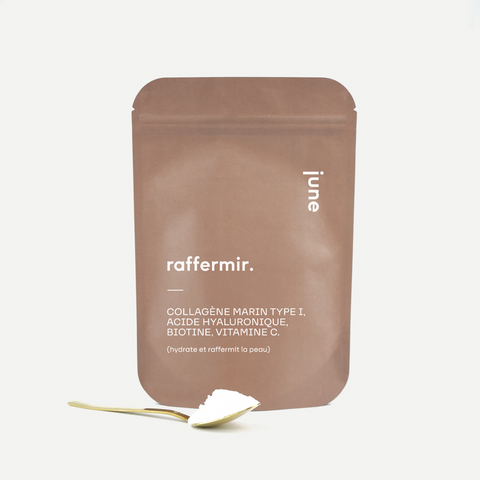
2. Use hydrating serums
In addition to your moisturizer, using a serum containing hyaluronic acid is highly recommended. This ingredient, capable of retaining up to 1000 times its weight in water, helps fill the spaces between skin cells, improving hydration and water retention.
A serum applied before your moisturizer can help boost skin hydration and prevent dryness in winter.
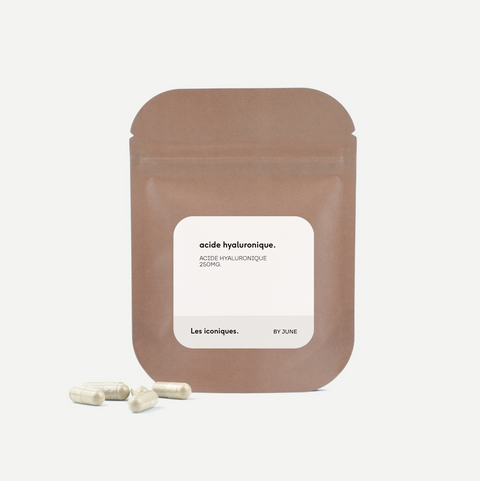
3. Adopt gentle gestures for the skin
In winter, it's important not to over-irritate your skin. Here are some tips to avoid worsening dry skin:
- Use gentle cleansers : Choose soap-free and sulfate-free cleansers, which do not remove the skin's natural oils.
- Avoid harsh scrubs : Overly abrasive exfoliants can damage skin already weakened by the cold. Opt for gentle or enzymatic exfoliants, which remove dead skin cells without irritating the skin.
4. Protect your skin from the cold
Protecting your skin from the cold is essential to prevent it from becoming dry. Consider wearing warm, protective clothing, such as gloves and scarves, to prevent exposed skin from being affected by wind and cold. Applying a moisturizing sunscreen is also crucial, even in winter, as UV rays can still affect the skin.
5. Maintain good internal hydration
While it's easy to forget to drink enough water in the winter, maintaining good internal hydration is crucial to supporting skin health. Drinking at least 1.5 to 2 liters of water per day helps prevent dehydration and boosts the effectiveness of moisturizers.
6. Use a humidifier
A humidifier is a great way to reintroduce moisture into your home, especially if you use heating systems that dry out the air. This device helps maintain optimal humidity levels in the environment, preventing skin from drying out.
The Importance of Dietary Supplements for Hydrated Skin
In addition to topical care, dietary supplements play a key role in skin hydration. Ingredients like omega-3s , vitamin C , and collagen are essential for maintaining a healthy skin barrier.
Marine Collagen - Anti-aging Formula is a supplement that, in addition to strengthening the skin from within, helps improve its elasticity and prevent the signs of aging, which can be exacerbated by the cold. It is especially recommended during the winter, when the skin needs a


